What makes a ferret bald?
Is ferret hair loss a cause for concern?
A hairless ferret is not an uncommon sight. In this post, we will answer questions regarding bald ferrets and what makes them that way. Here you can learn about some of the most common ferret illnesses, how to recognize them, and determine if the hair loss on your ferret is something you should treat or not.
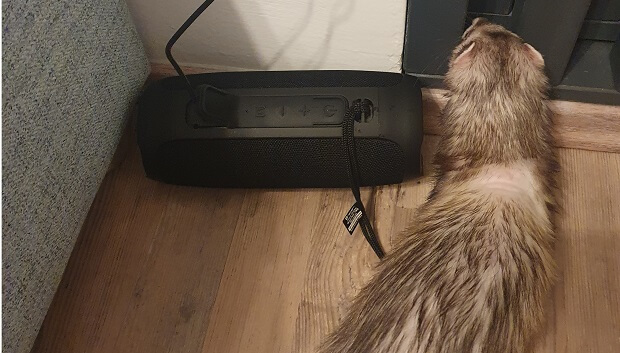
TABLE OF CONTENTS
What Type Of Hairs Do Ferrets Have?
Ferrets are fluffy animals, meaning they have tick and shiny fur on their body, except the nose and paws. Their coat consists of two types of hair, the undercoat, and the topcoat. The topcoat is longer than the undercoat and it is a usually different color. The length of the coat can be short and long, depends on the type of ferret. The hair color can also vary from brown to white and also depends on the type of the ferret.
When & Why Can Ferret Lose Fur?
There are many reasons for that and most of them are connected to some medical issue, small or big. So, today, we will share with you what those reasons are and what are the reasons for concern. I will start with the mildest ones and continue with serious health issues.
Seasonal Shedding
Seasonal shedding is the most common reason for ferret losing fur. But, when a ferret sheds, he can’t become bald or hairless. He is simply replacing the winter coat with the summer coat without leaving bald spots on the body. It usually lasts two to three weeks and happens between two seasons, just like with other animals. You can easily recognize shedding by the big amount of hair falling from your ferret, the time of year, and the fact that there aren’t any bald spots on the ferret.
Bad Ferret Nutrition
Ferrets are obligated carnivores which means they need a diet high in animal protein and fat. If nutrition is not good, a ferret can have a thin and brittle coat with partial bald spots also known as partial alopecia. A healthy ferret has a shiny and strong coat so the coat quality is a big sign of a health problem. This is another reason to go to the vet to check your ferret’s overall health and intervene if necessary. So, make sure you feed your ferret with good quality kibble or balanced raw meat nutrition suitable for ferrets.
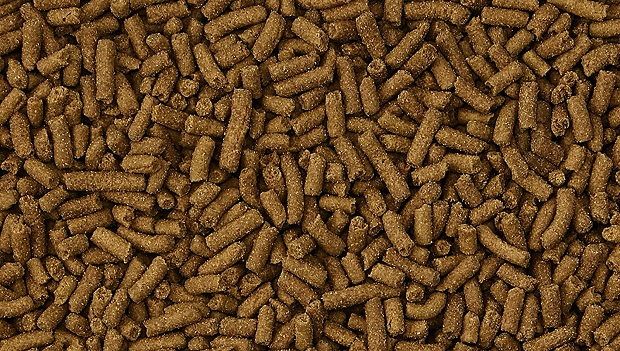
Parasites Cause Bald Patches
When I say parasites, I am thinking about fleas, ear mites, and skin mites. Those parasites aren’t dangerous for ferrets in general, but they can cause irritation and bald patches from over-scratching a certain spot. For example, ear mites can be the cause of bald patches on the ears. So, if you notice that your ferret is scratching too much and has bald spots, go to the vet for anti-parasite treatment! You can read more about how to deal with fleas in my post about ferrets and fleas.
Hairloss Due To Infectious Agents
Infectious agents are yeast and bacterial infections and ringworms – a fungal infection. Ringworm can cause bald patches and it can be diagnosed with ultraviolet light or using a fungal culture. Most ferrets can get it from kittens and cats and your vet can treat it with medicins for kittens and cats. Yeast and bacterial infections aren’t that common, but they can happen. Just like with the ringworms, they cause bald spots on the body or the head and they can be treated successfully with the right medication your veterinarian can prescribe.
Seasonal Tail Balding – Rat Tail
Ferret losing hair on the tail can be a sign of a “rat tail”, which occurs only during a seasonal shed. The rat tail won’t affect the entire tail, it happens on the tip of the tail while the base of the tail usually stays intact. That means the hair comes back on the next seasonal shed. This “rat tail” is considered a very early sign of adrenal gland disease so it is a good idea to visit the veterinarian for a checkup so you can avoid having a hairless ferret in the future.
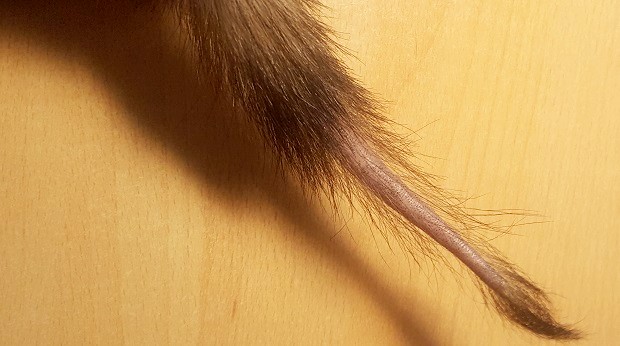
Adrenal Gland Disease
Adrenal gland disease is one of the most common medical conditions that cause ferret hair loss. The adrenal glands overproduce sex hormones and it disrupts the balance in the body which results in different medical problems and it happens mostly due to the too early spaying/neutering. It is a very famous illness among ferrets so it is not that hard for veterinarians to diagnose it. The vet can do that with a physical exam, bloodwork, and ultrasound. Adrenal gland disease has a specific balding pattern, meaning it often starts by ferret losing hair on the tail, on the base of the tail to be specific. Then, the ferret alopecia continues up the body on the back and it can end up around the neck and the head.
When To React About Hairless Ferret?
The moment you notice your ferret is losing hair that won’t come back, it is time to react and go to the veterinarian. It can be something smaller like a parasite or fungal infection or it can be something much more serious like adrenal glands disease. No matter what it is, a veterinarian will determine the treatment you have to give your ferret to help him with the hair loss.
FAQ
Are There Hairless Ferrets?
No, you should be aware that there is no such thing as a hairless ferret, a hairless ferret is not a type of ferret. Having a hairless ferret is not like having a sphynx cat or a Mexican hairless dog. If you have a hairless ferret, then your ferret is suffering and you have to visit the vet to find the cause of ferret hair loss.
What Can Cause A Ferret To Lose Hair?
Fleas, ear mites, yeast infection, ringworms, and adrenal glands disease can cause a ferret to lose hair. Your ferret can lose a small part of his hair which is called a bald patch or he can lose hair on a big part of his body like a tail, back, or head. If a big part of the body is affected, then it is most likely an adrenal glands disease.
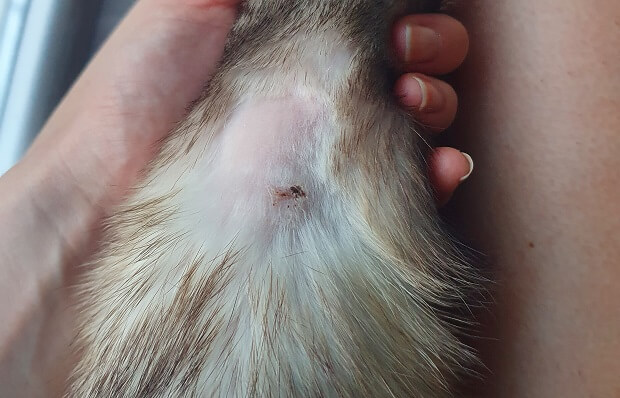
Why Is My Ferret Losing Weight And Hair?
If your ferret is losing weight and hair, specifically on the base of the tail and on the back, then your ferret probably has adrenal glands disease. You should go to the vet for a diagnose and treatment to keep your ferret in a good shape.
Will My Ferrets Hair Grow Back?
Yes, your ferret will grow his hair back once you resolve the issue of the ferret hair loss. Ferret’s hair growing back is a sign of recovery so it is something you should look forward to.
What Months Do Ferrets Shed?
There are two shedding seasons that happen in the spring and in the fall. Shedding from a winter coat happens in the spring and shedding from a summer coat happens in the fall. Light exposure can also affect your ferret shedding so you have to consider this as another factor.
Conclusion
The ferret losing hair on the tail, or on any other part of the body is a sign you should go to the vet because there are many reasons for that, but none of them is a good one. So, make sure you keep your ferret furry and fluffy at all times! If you are looking for more ferret tips, subscribe to the Friendly Ferret newsletter!

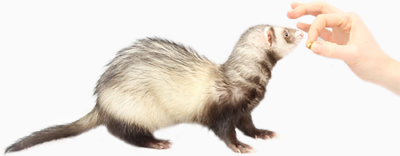


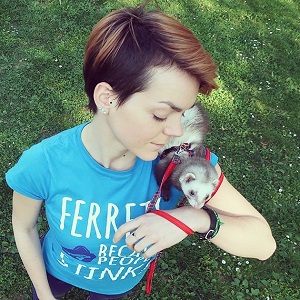








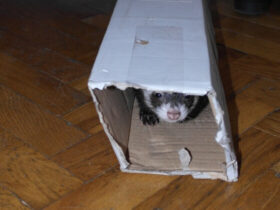
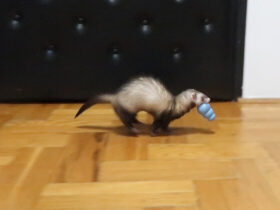

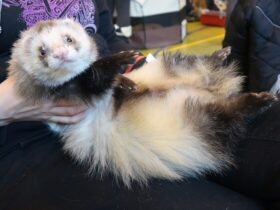
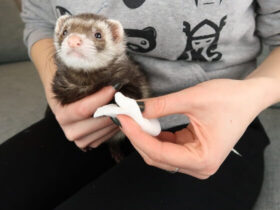

Leave a Reply